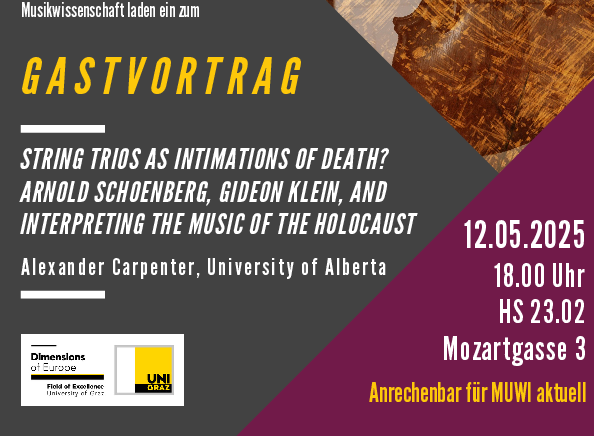12.05.2025
18:00 Uhr
HS 23.02 / Mozartgasse 3
This lecture focuses on two string trios, composed by Arnold Schoenberg and Gideon Klein.
Schoenberg composed his String Trio op. 45 in California in 1946, while the composer was
recovering from a near-fatal heart attack—the work documents the experience of this trauma and
the struggle to overcome death. Klein, a young Moravian-Jewish composer, wrote his String Trio
during his interment in the Theresienstadt ghetto, completing it in the early autumn of 1944, just as
the Nazis began a final series of deportations to Auschwitz-Birkenau (which included Klein, who
was murdered shortly thereafter). Why did these two composers choose—at almost the same
moment—the somewhat unusual genre of the string trio to document traumatic events and their
respective encounters with death? The genesis of Schoenberg’s Trio is reasonably well known;
Klein’s remains shrouded in mystery. This lecture uses interpretations of Schoenberg’s op. 45 and
his efforts to express a complex relationship with death to shed light on Klein’s Trio and his
experiences at Theresienstadt. It also proposes a new interpretation of the enigmatic third
movement of Klein’s Trio: namely, that it seeks to document—as symbolic reportage—the
liquidation of the camp even as it offers a critique of the camp as a Nazi façade and registers
Klein’s resignation in the face of imminent death.Kontakt: Assoz. Prof. Priv.-Doz. Mag. Dr. Ursula K. Mindler-Steiner (ursula.mindler(at)uni-graz.at)
